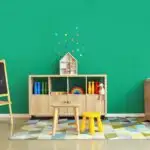Every grade, regardless of if it’s public school or homeschool is going to cover different subjects at different levels.
High schoolers will have a more advanced curriculum, whereas earlier grades will be a bit more flexible.
If you have a first grader in your home and you are homeschooling, then you are in luck because this grade is pretty flexible.
They are old enough to retain basic information, but you can still be a bit relaxed in your approach to teaching, so you can experiment a little.

If you want to work out the best curriculum for your first grader, then you have come to the right place.
We have put together a guide to help you choose what to cover in first-grade homeschooling. So read on to find out everything you need to know.
Understand Your Child’s Learning Style
Before you decide what to teach your first grader, it is important to have an understanding of their learning style.
Most kids respond to classic and traditional methods of teaching, but it is not too uncommon for these methods to not be suitable.
Take some time to get to know how your kid learns and what they respond to.
Are they more on the artsy side and love to draw rather than spend hours reading? Do they thrive by taking tests, or do they prefer to spend weeks on a project?
While they are still young in first grade, you can ask them questions to see what things they prefer to learn about.
While you have the final say over their homeschooling curriculum, taking into account their preferences will make the whole experience easier and more enjoyable for all parties involved.
The Most Important Subjects For First Graders To Focus On
In most states, you are largely left alone to choose what subjects you can teach your children. But in some states, there will be a list of ‘required subjects’ that all homeschoolers need to learn.
In most cases, these subjects are the most important and will help with future things, such as high school transcripts, getting into college, and even returning to public school if this is something you want to do.
When it comes to first graders, the most important subjects that you should be covering in your homeschool curriculum include:
- Language Arts
- Math
- Art
- Social Studies
- Science
- Physical Education/Movement
- Music
How you choose to implement them into your curriculum is up to you, but if you have a homeschooler who is at a first-grade level, each of these subjects will help them later on in their education.
All first graders should have Language Arts and Math in their curriculum. Below you will find more information about Language Arts and Math and how you can implement them in a first grader’s curriculum.
Language Arts For First Graders
Language Arts cover things such as Reading, Writing, Spelling, Speaking, and Listening.
First graders are at an age where they can speak better, read better, and hold real conversations with adults and other children, and now is a good time to expand on these skills.
Below, you will find examples of age-appropriate activities you can do with your first graders when it comes to Language Arts.
Reading & Spelling
- Choose age-appropriate books to read during class.
- Phonetically sound out easier words to teach them how to read and spell.
- Exposure to letters and emphasizing them when speaking aloud can help your first graders learn to spell the words the letters are attached to.
Writing
- Tracing and copying letters and words will help them get used to the pen strokes.
- Telling stories teaches them how to put the words together into sentences.
- Creative writing helps them learn more about adjectives and descriptions and use their imaginations.
Speaking & Listening
- Oral storytelling can help your children improve their speaking skills.
- Telling stories as the teacher encourages them to listen better.
- Just having a conversation about certain topics teaches your kids how to implement both their speaking and listening skills in real-life situations.

Math For First Graders
Math is just as important as Language Arts, and there are a few areas of Math that are suitable for First Graders.
Some of the most important areas of Math that you can cover at this grade level include Geometry, Fractions, Measurement, Calculations, and Number Sense.
Below, you will find examples of age-appropriate activities you can do with your first graders when it comes to Math.
Geometry
- Teach your children about basic shapes. Talk about how many corners make up a square and other related things.
- Introduce the concept of 2 Dimensional and 3 Dimensional shapes.
Fractions
- Introduce the concept of halves and fourths. It is ok if your kids don’t understand it straight away, but having an awareness of this can help them in later grades.
- Teach your children that fractions are equal halves.
Measurement
- Give some objects to your first graders and ask them to put them in order of size. This helps them understand the very basics of measurements.
- Measure the length of objects to help them understand further.
Calculations
- Introduce them to very basic addition and subtraction.
- Start teaching them the easier times tables.
- Use word problems to teach them addition and subtraction.
Number Sense
- Teach numbers up to 100.
- Use maths games Connect Four or Uno to develop their number sense.
- Sort numbers by pattern and/or size to help them understand each number’s value.
Further reading: How To make Homeschooling Easier
Conclusion
First graders are still quite young, so your curriculum doesn’t need to be complicated. Playing games and teaching the basics will help them dramatically in their later education.
There are lots of ways you can go about what to cover in your first-grade homeschooling, but it is very important to make sure Language Arts and Math are of top priority, as they’ll need these skills in every other grade.
And remember, pay attention to your kid’s learning style. This will help you implement a curriculum that suits them and helps them learn easier.
See also: Who Do I Report To On My Child’s Homeschooling?
- Homeschooling In High School: Pros And Cons - February 24, 2024
- How Do I Withdraw My Child From School To Homeschool? - February 23, 2024
- How To Not Go Crazy Homeschooling Kids: A Guide For Frazzled Parents - February 22, 2024









Leave a comment